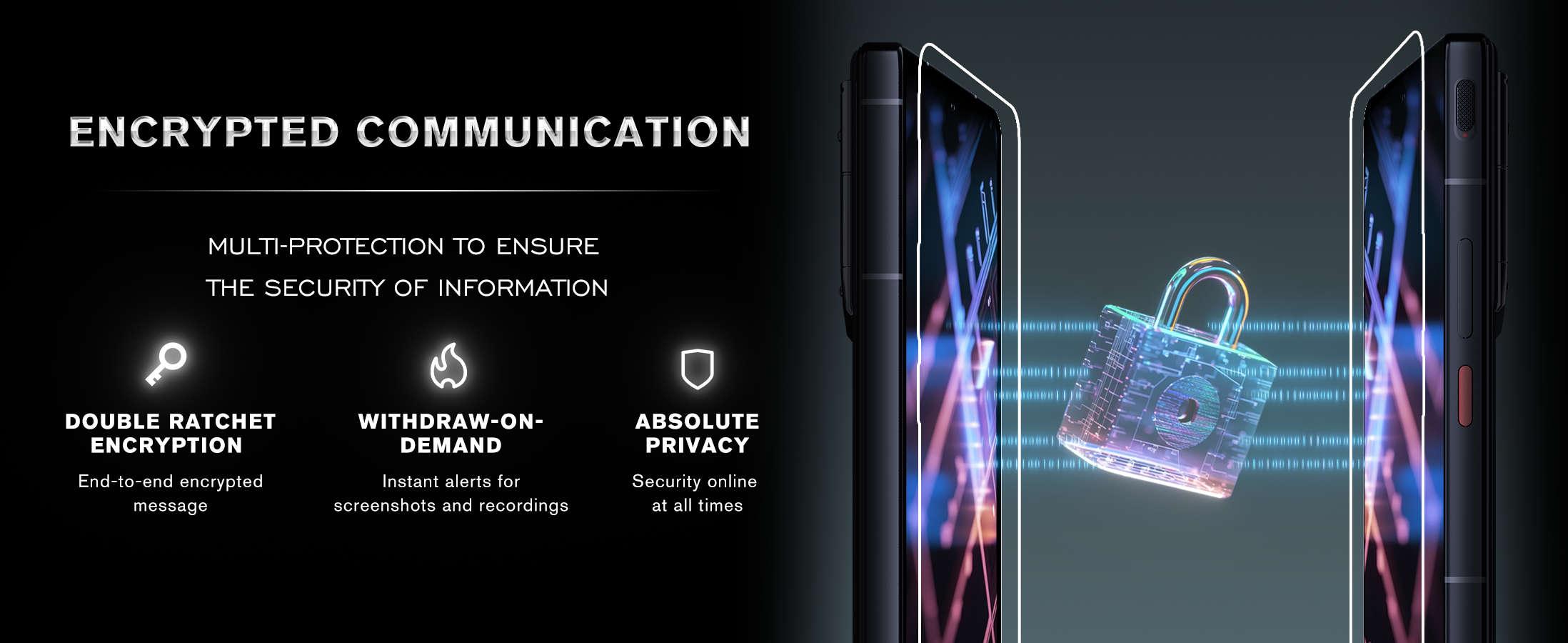
Mobile security keeps your devices and data safe from online threats. Phones are now key for talking, working, and banking. Protecting them is very important.
Here are some facts:
-
85% of Americans have smartphones, showing they are very common.
-
66% of workers use phones for jobs, saving 58 minutes daily.
-
68% of companies work better with BYOD (Bring Your Own Device) rules.
As more people use phones, strong security is needed to guard data and privacy.
Key Takeaways
-
Mobile security keeps your devices and data safe from dangers. Use strong passwords and fingerprint locks to protect your phone.
-
Only download apps from trusted places like Google Play or the App Store. This stops harmful software and keeps your phone secure.
-
Be careful with public WiFi. Don’t use it for private tasks. Use a VPN to make your connection safer.
-
Back up your data often to avoid losing it. Use cloud storage or an external drive to save your files.
-
Update your software regularly. Updates fix problems and guard your phone from new risks.
Understanding Mobile Security
What is Mobile Security?
Mobile security means using tools and methods to keep your phone and its data safe. It protects against online dangers like viruses, scams, and hackers. Phones are now used for talking, working, and banking, so keeping them secure is very important.
Here’s a simple look at mobile security:
|
Aspect |
Description |
|---|---|
|
Definition |
Mobile security, also called wireless security, protects portable devices. |
|
Goal |
Keep data safe, accurate, and available on mobile devices. |
|
Importance |
Helps stop risks and is part of a company’s safety plan. |
Mobile security also protects the networks your phone connects to. It keeps private information safe and stops identity theft or hacking. As more people use phones for work and life, strong security is a must.
Key Objectives of Mobile Security
Protecting Sensitive Data
Your phone holds personal and work info like money details, emails, and pictures. Mobile security keeps this data safe from hackers. Encryption helps by making your info unreadable to others.
Preventing Unauthorized Access
Hackers can steal your data if they get into your phone. Tools like fingerprint scans, face unlock, and strong passwords keep your phone safe. These features make sure only you can use your phone.
Ensuring Device Functionality and Privacy
Mobile security also keeps your phone working well. Viruses can slow it down or break it. Security tools stop these problems and protect your privacy.
Modern tools like Zero Trust and Mobile Threat Defense help with these goals. They check for problems all the time and keep your phone and data safe.
Why Mobile Security is Important
How Mobile Devices Fit into Everyday Life
Mobile devices are now a big part of life. People use them for talking, banking, and working. These devices store lots of private information, making them a target for hackers.
-
Phones help you stay in touch, handle money, and do work.
-
They keep personal details like contacts, bank info, and job files.
-
If hacked, one phone can cause privacy problems and money loss.
-
Most adults in the U.S. own a smartphone.
-
BYOD policies help workers be more productive and flexible.
-
Companies save money when workers use their own phones.
Because we depend on phones so much, strong security is needed to protect data and privacy.
Dangers of Data Leaks and Privacy Problems
Data leaks can cause serious harm. Hackers find weak spots in phones to steal private info, leading to money loss and stolen identities.
|
Event |
What Happened |
|---|---|
|
AT&T Data Leak |
Call and text info from 109 million accounts was stolen. |
|
National Public Data Leak |
Data of 2.9 billion people, like names and Social Security numbers, was exposed. |
|
Chinese Spying via Telecoms |
Hackers broke into U.S. telecom networks to track and spy on important people. |
Apps often collect personal info like your location and contacts. Without good security, this info can be stolen, putting you at risk of hacking and identity theft.
Why High-End Devices Need Strong Security

Expensive phones need extra protection for their users. The METAVERTU BASIC HIMALAYA ALLIGATOR SKIN 5G WEB3 PHONE has top-notch security features to keep your data safe.
This phone uses a special chip for secure data storage. It also lets you switch between Web2.0 and Web3.0 apps easily, improving both safety and usability. With these features, it sets a high bar for security in luxury phones.
Common Mobile Security Threats
Malware and Viruses
Malware and viruses are big dangers for phones. These harmful programs can steal data, slow your phone, or break it. In just Q3 2021, over 9.5 million attacks hit phones. These included malware, adware, and riskware. RiskTool apps made up 65.84% of all mobile threats, showing how common they are.
Malware often hides in apps that look safe. Once downloaded, it can steal private info like bank details or photos. For example, banking trojans steal money, and ransomware locks your phone until you pay. To stay safe, only get apps from trusted stores and update your phone often.
Phishing Attacks
Phishing tricks people into sharing private info like passwords or credit cards. Fake emails, texts, or websites are used to fool users. Studies show 82% of phishing sites target phone users. Many of these sites use HTTPS, making them seem safe.
If you download apps from unknown places or click strange links, you’re at risk. In 2022, Android phones had 58% more security problems. To avoid phishing, don’t click unknown links and use tools to spot fake sites.
Public WiFi Vulnerabilities
Public WiFi is handy but not always safe. These networks often lack strong security, making it easy for hackers to steal data. Common attacks include:
|
Type of Attack |
Description |
|---|---|
|
Man-in-the-middle attack |
Hackers listen to data between your phone and the WiFi. |
|
Evil twin attack |
Fake WiFi spots trick users into connecting and stealing data. |
|
Packet sniffing attack |
Hackers grab unprotected data like passwords or private info. |
Using a VPN can help keep your data safe on public WiFi. But many people don’t know these risks, leaving their phones open to attacks.
Unauthorized App Downloads
Getting apps from unknown places can be very risky. These apps might hide harmful software that steals your data or breaks your phone. Some apps secretly take personal info like passwords or bank details and send it to hackers. Others may add spyware to watch what you do without you knowing.
To stay safe, only download apps from trusted stores like Google Play or Apple App Store. These stores check apps for harmful content often. Before downloading, read app reviews and check what permissions it asks for. If an app wants access to things it doesn’t need, like your contacts or location, it might not be safe. Being careful can help protect your phone and keep your data safe.
Device Theft or Loss
Losing your phone is more than just annoying. It can let others see your private data, risking your security. Stolen phones can give hackers access to personal or work information.
-
Phones are easy to lose, making them targets for theft.
-
In 2017, a stolen laptop exposed the data of 43,000 patients.
To reduce risks, turn on remote wipe and location tracking. These tools let you erase data or find your phone if it’s lost. Use strong passwords and fingerprint or face locks to stop others from getting in. These steps can help keep your data safe even if your phone is stolen.
How Vertu's rubykey Enhances Protection Against Mobile Security Threats
Vertu‘s rubykey is a special tool for mobile security. It has a ruby button that starts a private assistant for extra safety. This feature includes global security services to protect your data in risky situations.
The rubykey also gives personal help to manage your phone’s security. It can secure your calls or give travel safety advice. This tool combines luxury with strong protection, making it great for keeping your phone safe from modern dangers.
Key Components of Mobile Device Security
Device Security
Lock screens and biometric authentication
The lock screen is your phone's first protection. A strong PIN or password stops others from getting in. For better safety, use fingerprint scans or face unlock. These tools make sure only you can open your phone.
Experts say to use both strong passwords and biometrics. This makes it harder for anyone to break into your phone, even if stolen. Adding two-factor authentication (2FA) makes it even safer. With 2FA, a second step is needed after the password to access your data.
Tip: Create a password with letters, numbers, and symbols. Avoid using easy-to-guess details like your name or birthday.
Application Protection
Verifying app permissions and sources
Keeping apps safe is key to protecting your data. Download apps only from trusted places like Google Play or Apple App Store. These stores check apps to meet safety rules.
Before downloading, look at what the app asks to access. Some apps may want to see your contacts or location without a reason. This could be unsafe. Checking permissions helps stop apps from taking private info.
Learn about phishing and other tricks. Phishing can fool you into downloading bad apps or sharing personal details. Staying careful can help you avoid these dangers.
Data Encryption
Encrypting sensitive files and communications
Encryption keeps your data safe by turning it into unreadable code. It protects both stored data and data sent online.
Most phones now have built-in encryption tools. Turn these on to secure your files and messages. Apps with encryption make sure only the person you send messages to can read them. This is very useful for sharing private info like bank details.
Encryption also guards your data on public WiFi. It stops hackers from stealing your info while you’re online. In today’s world, encryption is a must for keeping your phone secure.
Regular Software Updates
Fixing weak spots in apps and systems
Updating your phone's software is an easy way to stay safe. Updates fix known problems, keeping hackers and harmful software away. Without updates, your phone is open to attacks using old software flaws.
-
Updates fix security issues in apps and systems.
-
In 2020, experts found 18,353 problems in the CVE list.
-
About 97% of tested software had security weaknesses.
These updates also block new dangers by fixing issues before hackers can use them. Many updates include important fixes to stop new risks. Installing updates quickly lowers the chance of data theft or privacy problems.
Tip: Turn on auto-updates to always get the newest fixes. This simple action can protect you from cyberattacks.

Advanced Security Features in Vertu's Meta2
The Meta2 phone offers top security with smart features. It has three systems: Web3.0, Web2.0, and a Ghost system. You can switch systems based on how private you need to be. The Ghost system keeps sensitive data separate for extra safety.
The phone also has tools to keep calls and messages private. Its secure digital wallet protects your money transactions. With 10TB of storage, your data stays safe from leaks.
The Meta2 mixes luxury with advanced tech, perfect for users who want style and safety. Its strong features protect your personal and work info all the time.
Note: The Meta2's Snapdragon 8 Gen2 chip boosts speed and security, giving you confidence in today’s fast digital world.
Practical Tips to Improve Mobile Security
Create Strong Passwords and Use Multi-Factor Authentication
Passwords are the first step to protect your phone. A strong password uses letters, numbers, and symbols. Avoid easy ones like “123456” or your name. Make a unique password only you know. A password manager can help you save and organize them safely.
Adding multi-factor authentication (2FA) makes your phone even safer. With 2FA, you need a second step, like a code sent to your phone. This stops others from getting in, even if they know your password. Features like fingerprint scans or face unlock add extra safety, so only you can open your phone.
Tip: Turn on 2FA for all accounts that allow it. This simple step makes hacking much harder.
Stay Away from Suspicious Apps and Links
Downloading apps from unknown places can harm your phone. Use trusted stores like Google Play or Apple App Store. These stores check apps for safety. Before downloading, check what the app wants to access. If it asks for things like your contacts or location without reason, it might not be safe.
Phishing tricks often use fake links to steal your info. These links can show up in emails, texts, or ads. Always check where a link comes from before clicking. Learning about phishing can help you avoid these traps.
Note: Keep your apps and phone updated. Updates fix problems hackers might use to attack.
Be Careful with Public WiFi
Public WiFi is useful but not always safe. Many networks don’t have strong security, making it easy for hackers to steal your data. For example, many people use public WiFi for banking without knowing the risks. Hackers can use tricks like “man-in-the-middle” to take private info.
To stay safe, don’t use public WiFi for personal accounts or money tasks. Use a virtual private network (VPN) to keep your connection private. If you can, use your phone’s data instead of public WiFi for important things.
Tip: Turn off automatic WiFi connections. This stops your phone from joining unsafe networks by accident.
Regularly Back Up Your Data
Backing up your phone's data is simple and very helpful. It protects your information from being lost due to mistakes, theft, or hacking. With a backup, you can quickly get your important files back without much trouble.
Here’s why backups are important:
|
Source |
Key Point |
|---|---|
|
Trend Micro |
Backups make it easy to recover data and avoid big problems. |
|
Secure Data |
Safe backups protect your files and let you restore them easily. |
|
Triton Computer Corp |
A good backup plan helps you recover fast and reduce delays. |
Use cloud storage or external drives to save your backups. Many phones have automatic backup features to make this easier. Check often to ensure your backups are current and stored safely.
Tip: Set a weekly reminder to back up your data for safety.
Install Trusted Security Software
Good security software is key to keeping your phone safe. New malware changes quickly, making older tools less useful. Modern security programs use smart technology to find and block harmful apps.
Why security software matters:
-
Old methods can’t handle fast-changing malware.
-
Advanced testing finds and stops tricky threats.
-
Only 38% of businesses use mobile security, leaving many phones at risk.
Install trusted security software to guard against malware, phishing, and hackers. Look for features like real-time checks, app safety scans, and network protection. These tools work together to keep your phone secure.
Note: Pick software from well-known companies for the best protection.
Leveraging Vertu's METAVERTU BASIC HIMALAYA ALLIGATOR SKIN 5G WEB3 PHONE for Enhanced Security
The METAVERTU BASIC HIMALAYA ALLIGATOR SKIN 5G WEB3 PHONE offers top-level phone security. Its special A5 chip provides strong encryption to protect your data. This phone also lets you switch between Web2.0 and Web3.0 systems for safer app use.
With three layers of security, the METAVERTU blocks malware, phishing, and hackers. Its 10TB IPFS storage keeps your data safe and available, even during cyberattacks. The phone’s fancy design, made with alligator skin and sapphire, mixes style with safety.
This phone sets a high standard for security and is great for users who value privacy and performance.
Tip: Check out the METAVERTU’s features for a mix of luxury and strong security.
Mobile security is key to keeping your data private and safe. Cyber threats are growing, so strong security is now a must. New devices use smart tools like AI to spot and stop risks. Without good protection, phones with emails, contacts, and money info can be easy targets for hackers.
Vertu‘s high-end devices, like the METAVERTU BASIC HIMALAYA ALLIGATOR SKIN 5G WEB3 PHONE, Meta2, and rubykey, offer top security. These devices mix style with strong safety features to protect your data. For example, the METAVERTU’s A5 chip and Web3 tools give great security, while the rubykey adds extra help for safety.
To keep your phone secure, follow the tips in this blog. Use strong passwords, stay away from risky apps, and update your software often. These steps will help you use your phone safely and without worry.
FAQ
How can you keep your phone safe?
Use strong passwords and turn on fingerprint or face unlock. Install trusted security apps to protect your phone. Update your phone and apps often to fix problems. Don’t download apps from unknown places. For extra safety, phones like Vertu's METAVERTU have special tools for privacy and encryption.
How do you stay safe on public WiFi?
Don’t use public WiFi for banking or private accounts. Use a VPN to hide your data and stay secure. Turn off auto-connect to stop your phone from joining unsafe networks.
Why is encryption important for phone safety?
Encryption scrambles your data so hackers can’t read it. It protects your files, messages, and online actions. Phones like Vertu's Meta2 have built-in encryption to keep your info safe.
What should you do if your phone is stolen?
Set up remote wipe and tracking before losing your phone. These tools help you erase data and find your phone. Use strong passwords and locks to block others from getting in. Phones like Vertu's METAVERTU have strong security to protect your data.
How does Vertu's rubykey improve phone security?
The rubykey offers global safety services and a private helper. It secures calls, manages risks, and keeps your data safe. This tool mixes luxury with strong protection for users who value privacy.








